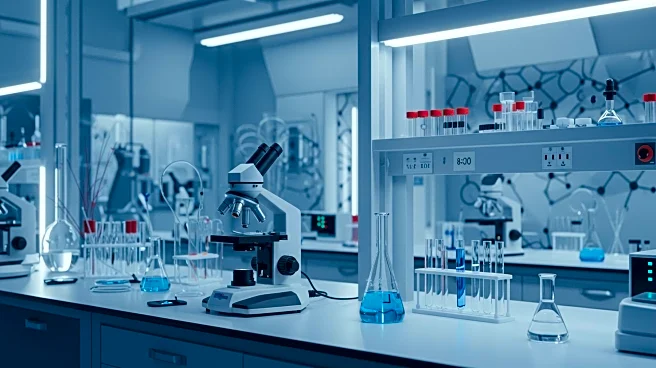What's Happening?
Georgia Tech and Agilent Technologies have announced the creation of a new Center of Excellence (CoE) for Environmental Health and Engineering. This initiative aims to advance research in environmental sustainability, water recycling, and biologics. Professor Shane Snyder, an internationally recognized environmental scientist from Georgia Tech's School of Civil and Environmental Engineering, will lead the center. The CoE will serve as a hub for innovation in environmental characterization, integrating Agilent's advanced cell analysis instruments and mass spectrometers to support research on rapid evaluation of water and environment safety. The center will focus on developing novel technologies for municipal and industrial water recycling, advancing waste material upcycling and resource recovery, and exploring cell-based analysis to evaluate complex environmental mixtures. It will also train the next generation of scientists in sustainable environmental solutions.
Why It's Important?
The establishment of the Agilent Center of Excellence at Georgia Tech is significant for advancing environmental health and safety research. By fostering collaboration between academia and industry, the center aims to address pressing sustainability challenges. This partnership provides researchers with state-of-the-art tools and expertise, potentially leading to breakthroughs in water treatment, waste upcycling, and resource recovery. The focus on cell-based analysis to understand the health relevance of chemical mixtures in the environment could lead to improved safety standards and regulatory policies. The center's work is crucial for developing sustainable solutions that can be applied globally, impacting industries such as water management, waste treatment, and environmental protection.
What's Next?
The collaboration between Georgia Tech and Agilent Technologies is expected to push the boundaries of environmental research. With access to advanced instrumentation and scientific expertise, the center will accelerate discoveries in environmental sustainability. The partnership builds on a longstanding relationship between Agilent and Professor Snyder, who has been recognized for his influential work in water-quality research. The Georgia Tech CoE will serve as a model for industry-academia collaboration, potentially leading to new technologies and methodologies that address global environmental challenges. Future developments may include expanded research initiatives, increased funding opportunities, and enhanced training programs for scientists.
Beyond the Headlines
The creation of the Agilent Center of Excellence at Georgia Tech highlights the importance of interdisciplinary collaboration in addressing environmental issues. By integrating advanced technologies and scientific expertise, the center aims to develop solutions that are both innovative and practical. This initiative underscores the role of academic institutions in driving scientific progress and influencing public policy. The focus on environmental health and safety reflects a growing awareness of the need for sustainable practices in industry and society. The center's work could lead to long-term shifts in how environmental challenges are approached, emphasizing the importance of research-driven solutions.










